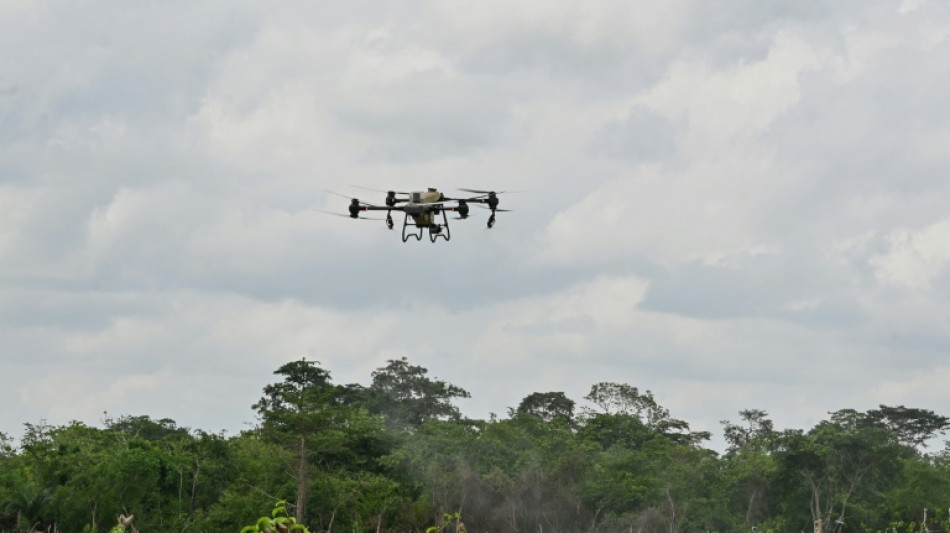
-
 Rahm 'confident' of ending Spain's British Open wait
Rahm 'confident' of ending Spain's British Open wait
-
Astronauts from US, India, Poland, Hungary on SpaceX capsule return to Earth

-
 England call up Dawson to replace injured Bashir ahead of fourth Test
England call up Dawson to replace injured Bashir ahead of fourth Test
-
Ukraine covers frontline roads with anti-drone nets
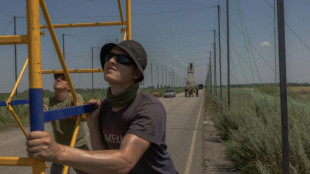
-
 Barca star Yamal faces probe into dwarf entertainers at 18th birthday
Barca star Yamal faces probe into dwarf entertainers at 18th birthday
-
China's Xi vows greater support for Russia as meets Lavrov

-
 England midfielder Henderson joins Brentford
England midfielder Henderson joins Brentford
-
Markets rise as China's economy meets forecasts

-
 Markets mostly rise as China's economy meets forecasts
Markets mostly rise as China's economy meets forecasts
-
Syrian forces enter Druze city after deadly clashes

-
 'World's oldest marathon runner' dies aged 114 in road accident
'World's oldest marathon runner' dies aged 114 in road accident
-
Indigenous Australians lose landmark climate court case against government
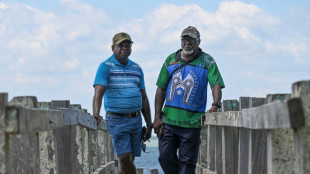
-
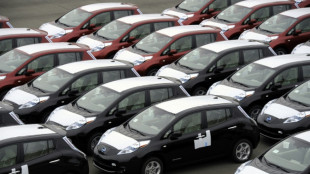 Skidding Nissan to halt production at Japanese plant
Skidding Nissan to halt production at Japanese plant
-
Passion for hand fans sizzles in burning Spanish heat

-
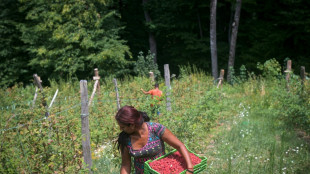 Drought-hit Serbian raspberry farmers fear 'catastrophic' future
Drought-hit Serbian raspberry farmers fear 'catastrophic' future
-
Jadeja hailed for taking India close but Gavaskar rues lack of risk

-
 'Dialogue' must be at heart of China, Australia ties, PM tells Xi
'Dialogue' must be at heart of China, Australia ties, PM tells Xi
-
Ivory Coast farmers hope tech tempts jaded youth back to fields
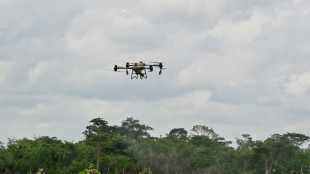
-
 France's new star Lanier ready for home pressure at badminton worlds
France's new star Lanier ready for home pressure at badminton worlds
-
Hong Kong leader backs same-sex couples' rights bill

-
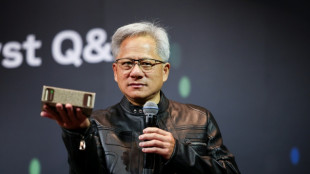 Nvidia says it will resume sales of 'H20' AI chips to China
Nvidia says it will resume sales of 'H20' AI chips to China
-
Egypt grand museum delay puts tourism hopes on hold

-
 Asian markets mixed as China's economy meets forecasts
Asian markets mixed as China's economy meets forecasts
-
China's economy grows 5.2% on trade war truce
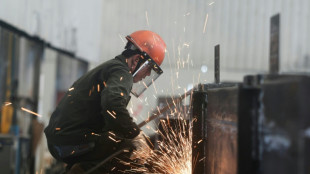
-
 Divided EU weighs action against Israel over Gaza war
Divided EU weighs action against Israel over Gaza war
-
'Butter': the foodie feminist bestseller skewering sexism in Japan

-
 France, Eq. Guinea to clash at UN top court over Paris mansion
France, Eq. Guinea to clash at UN top court over Paris mansion
-
Unreleased Beyonce music stolen from car in Atlanta

-
 Sweden's Soft Hooligans push better vibes at Women's Euros
Sweden's Soft Hooligans push better vibes at Women's Euros
-
Creepy find: German customs net tarantulas in cookie shipment

-
 Pentagon inks contracts for Musk's xAI, competitors
Pentagon inks contracts for Musk's xAI, competitors
-
Two men who chopped down iconic UK tree to be sentenced

-
 W. Virginia villagers take on AI-driven power plant boom
W. Virginia villagers take on AI-driven power plant boom
-
Tech giants scramble to meet AI's looming energy crisis

-
 Trump sours on Putin, but bromance may not be over
Trump sours on Putin, but bromance may not be over
-
Supreme Court allows Trump to resume Education Department dismantling

-
 Fortified Health Security Publishes 2025 Mid-Year Healthcare Cybersecurity Report
Fortified Health Security Publishes 2025 Mid-Year Healthcare Cybersecurity Report
-
Primary Hydrogen Launches Phase 2 Hydrogen Sampling at Crooked Amphibolite, Coquihalla, And Cogburn Projects In British Columbia

-
 A Tradition of Excellence: E. W. Smith Roofing Wins 2025 Consumer Choice Award in Toronto Central
A Tradition of Excellence: E. W. Smith Roofing Wins 2025 Consumer Choice Award in Toronto Central
-
Welcome to DEA Judge McLooney's Marijuana Kangaroo Court-DEA Grants Itself a Favor, Denies MMJ Cannabis Drug Relief

-
 AATec Medical and Northway Biotech Announce Partnership to Develop Industrial Production Process for ATL-105 Targeting Lung Disease
AATec Medical and Northway Biotech Announce Partnership to Develop Industrial Production Process for ATL-105 Targeting Lung Disease
-
Nano One Selected to Join U.S. ALTA and Strengthen North American Battery Supply Chain

-
 Star Copper Provides Site Visit Update of Ongoing Drill Campaign in British Columbia's Golden Triangle
Star Copper Provides Site Visit Update of Ongoing Drill Campaign in British Columbia's Golden Triangle
-
SAINT BELLA Debuts in the U.S., Setting a New Standard for Postpartum Care

-
 IXOPAY Surges Past 500 Certified Adapters, Solidifies Leadership in Enterprise-Grade Payment Orchestration
IXOPAY Surges Past 500 Certified Adapters, Solidifies Leadership in Enterprise-Grade Payment Orchestration
-
NBA Sixers forward George undergoes left knee surgery

-
 US House set to vote on landmark crypto bills this week
US House set to vote on landmark crypto bills this week
-
US pro athletes reject antitrust exemptions for college sports

-
 Three things we learned from the third England-India Test
Three things we learned from the third England-India Test
-
Starc inspires Australia as West Indies all out for 27


Ivory Coast farmers hope tech tempts jaded youth back to fields
Stopwatch in hand, dozens of Ivory Coast students raced against the clock to design robots for the farms of the future in the world's top cocoa-producing nation.
With each team facing off to draw up the best bot blueprint, the competition is part of a broader push to tempt the west African nation's large population of young people, disillusioned with farming life, back to the plough.
Though farming has long been the pillar of Ivory Coast's economy, many young Ivorians have turned their backs on fruit-picking and tree-felling, discouraged by the hard labour and the slow pace of progress.
"I come from a family of farmers," 20-year-old student Pele Ouattara told AFP at the event in Abidjan, Ivory Coast's largest city.
"My passion for robotics grew out of my desire to improve the conditions in which my parents used to farm," he added.
On a rival team several metres away, fellow student Urielle Diaidh, 24, feared that Ivorian farming "risks dying out with time if modern technologies aren't adopted".
Dominated by the cultivation of cocoa, rubber and cashew nuts, nearly half of Ivorians with jobs work in agriculture in one way or another.
Yet the country's farms have been slow to modernise. Less than 30 percent of farms are mechanised, according to the National Centre for Agronomic Research.
And although three-quarters of Ivorians are under the age of 35, the sector is struggling to refresh an ageing workforce.
Surrounded by a flurry of tiny white robots on their circuit rounds, digital transformation engineer Paul-Marie Ouattara said he has seen "a real enthusiasm from young people" for bringing agriculture into the 21st century.
This "agriculture 4.0" that the competition wishes to promote is "improved, enhanced through new technologies, whether they be robots, drones, artificial intelligence, or data processing", the 27-year-old said.
All these "will help the farmer", insisted Ouattara, who works for a private business which sponsored the contest.
- Change, but for whom? -
Young people have not wholly given up on farming, however -- just on the old way of tilling the land.
At the Ivorian digital transition ministry, Stephane Kounandi Coulibaly, director of innovation and private sector partnerships, said he had seen a boom in agricultural start-ups.
Most of them were founded by young people, he added.
The "agritech" trend mirrors that already in motion across the continent, including in Benin, Nigeria and Kenya, with Abidjan hosting a forum for African start-ups at the beginning of July.
Ivory Coast's world-leading cocoa growers, who produce 40 percent of the global supply, are also climbing aboard.
"We have noticed the appearance of new technologies since four or five years ago," said Thibeaut Yoro, secretary-general of the national union of cocoa producers.
Yoro hailed how those shiny new gadgets helped lighten a "strenuous" job still riddled with "archaic practices".
"We dig, we hack through the bush, we harvest with machetes," he said, with planters suffering from "back aches and fatigue" as a result.
"These are things which could be changed with new technology," the trade union leader argued.
Who can afford those mod cons is another question altogether.
A pesticide-spraying drone with a capacity of 20 litres (five US gallons) can cost nine million CFA francs, or around $16,000.
That is nine times what the average farmer, owning one hectare (two-and-a-half acres) of cocoa trees, would make in six months.
- 10 minutes vs two days -
To reduce those costs, out of the reach of most farmers, a number of Ivorian enterprises offering equipment and technology for hire have sprung up.
In the verdant countryside outside of Tiassale, around 125 kilometres (78 miles) outside of Abidjan, Faustin Zongo has called in a contractor to spray his field of passion fruit plants with pesticides.
Thanks to the drone, the job took 10 minutes per hectare to complete, for the cost of around $27.
Using traditional methods, "it would take two days for each hectare", the farmer said.
By his side, Nozene Ble Binate, project manager for Investiv -- the company Zongo hired -- said that using up-to-date technology made farming "more attractive".
"More and more young people are returning to the land and reaching out to us," the 42-year-old said.
Back in Abidjan, Jool has made a business of offering ranchers software-powered analysis of their crops, with prices starting under $100.
The start-up's 32-year-old founder, Joseph-Olivier Biley -- the son of farmers himself -- boasted of his tool's ability to "know what to plant, where and how" and to "detect diseases before they strike".
With it, farmers could expect yields "optimised by more than 40 percent", Biley told AFP at Jool's offices, on the outskirts of the Ivorian economic capital.
At the digital transformation ministry, Coulibaly, the innovation chief, said the west African country plans to build a centre for manufacturing state-of-the-art inventions and training farmers in their use.
That would mean Ivorian businesses would no longer have to import their technology from abroad, often from China, he added.
G.Stevens--AMWN
